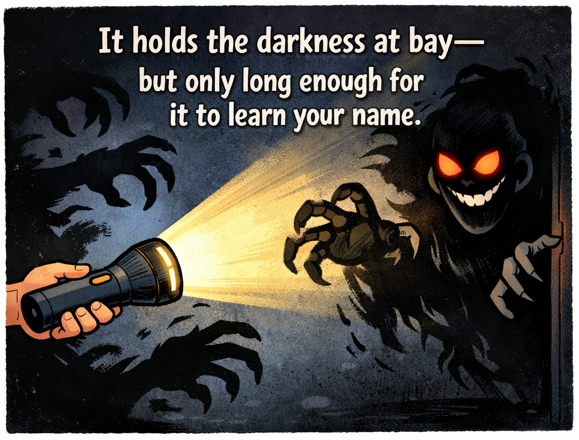From “The Jerk” to “Trolls”: A Cinematic Journey Through Delusion and Self-Discovery
- Feb 22, 2025
- 4 min read

At first glance, the 1979 Steve Martin comedy The Jerk and DreamWorks’ Trolls franchise
(2016–present) could not seem more different. One is a satirical, absurdist rags-to-riches
story about a clueless man navigating the real world, while the other is a candy-coloured,
musical adventure about tiny creatures spreading happiness.
Yet, beneath their vastly different aesthetics and intended audiences, both films share an
underlying theme of delusion—either as a comedic device or as a central existential struggle.
They explore characters who construct false realities and the consequences of confronting
truth. While The Jerk uses delusion as a lens for adult satire, Trolls cleverly integrates similar
ideas into a family-friendly format, subtly touching on themes of self-deception, ignorance, and manufactured happiness.
By analysing the surprising narrative and thematic parallels, this article will explore how both films comment on the illusion of happiness, the construction of identity, and the
confrontation with reality.
The Jerk: A Satire of Self-Delusion
Steve Martin’s The Jerk (1979), directed by Carl Reiner, is a masterclass in absurdist
comedy, chronicling the life of Navin Johnson, a simple-minded but well-meaning man who
believes he is something he is not.
Navin Johnson: The Delusional Optimist
Navin, a white man adopted by a Black family, genuinely believes he is Black, until he is faced with the obvious contradiction.
His earnest but misguided perception of reality leads him into a series of bizarre misadventures, from rags to riches to ruin and back again.
Despite financial success and heartbreak, his understanding of the world remains hilariously and tragically naive.
Happiness as an Artificial Construct
Navin believes he can achieve happiness through external validation—money, fame, material wealth—but the film ultimately deconstructs the American Dream, showing that these things fail to provide true fulfilment.
His most famous line—“I don’t need anything… except this chair, this lamp, this paddle game…”—parodies the illusion of material satisfaction.
His rise and fall emphasise how happiness built on delusion is fragile.
In The Jerk, self-deception is the core of the humour, but also its tragedy. Navin’s arc is about discovering who he actually is versus who he imagined himself to be.
Trolls: The Family-Friendly Examination of Delusion
While Trolls (2016) and its sequels are vibrant, high-energy musical films aimed at children,
they contain strikingly similar themes of self-delusion wrapped in a more accessible, colourful package.
The Trolls’ Manufactured Reality
The Trolls live in a world of constant happiness, singing, and dancing, oblivious to external dangers.
Their worldview is shattered when they encounter the Bergens, a species that believes happiness can only be obtained by consuming Trolls.
The illusion of happiness as a permanent state is challenged—just as in The Jerk, where material wealth does not equate to fulfilment.
Poppy: A Modern Navin Johnson?
Princess Poppy, the perpetually cheerful protagonist, mirrors Navin’s naivety:
She believes positivity alone can solve all problems, dismissing reality until it becomes impossible to ignore.
Like Navin, she must confront the uncomfortable truth—that her worldview is limited, and happiness requires more than blind optimism.
In Trolls: World Tour (2020), Poppy’s belief that all music genres can unite harmoniously
is shattered when she learns the history of oppression within the musical factions—a subtle but profound exploration of privilege and ignorance.
Bergen Society as a Satirical Mirror
The Bergens externalise their search for happiness, mirroring Navin’s belief that wealth equals contentment.
When they realise happiness cannot be consumed but must be cultivated internally, it reflects The Jerk’s critique of consumerism and the illusion of quick-fix fulfilment.
Shared Themes: Delusion, Identity, and the Search for Meaning
1. The Comedy of Self-Deception
Both The Jerk and Trolls use characters who misunderstand reality for comedic effect. However, their journeys force them to reconcile perception with truth, ultimately making them stronger.
2. The Myth of External Happiness
In The Jerk, Navin thinks money will solve everything. In Trolls, the Bergens believe eating Trolls will bring happiness. Both narratives debunk the idea that fulfilment comes from external sources, reinforcing the idea that happiness is an internal state of being.
3. Confronting Reality Without Losing Joy
While both films challenge naive optimism, they do not suggest that happiness is unattainable—rather, it must be earned through experience and self-awareness. The conclusion of The Jerk (Navin finding joy in simplicity) and Trolls (Poppy
understanding different perspectives) reflect the balance between optimism and realism.
Conclusion: The Absurdity and Necessity of Delusion
Despite their different audiences, The Jerk and Trolls explore the same fundamental human
condition—our ability to deceive ourselves in pursuit of happiness.
The Jerk satirises blind optimism and consumerism, showing how delusion can be both hilarious and tragic.
Trolls reimagines self-deception as a coping mechanism, teaching children that growth comes from understanding and adaptation.
Both films, in their own way, suggest that while delusion can be comforting, true happiness requires self-awareness and an acceptance of reality. Whether it’s Navin clinging to his absurd ideas or Poppy’s belief in universal harmony, these stories remind us that while ignorance may be bliss, knowledge is power—even when covered in glitter.

Why did the troll keep getting lost while driving? Because he could never see the signs over the dashboard!
“The Jerk” laughs at the folly of delusion, while “Trolls” teaches us how to move past it. In both cases, happiness is not about avoiding reality, but learning to navigate it.”
Final Thought: If The Jerk had been made today, Navin might just be a Troll—dancing, singing, and blissfully unaware of the chaos around him. The difference? Eventually, the music stops.
Sources & References
The Jerk (1979), directed by Carl Reiner, Universal Pictures.
Trolls (2016) and Trolls: World Tour (2020), directed by Mike Mitchell and Walt Dohrn, DreamWorks Animation.
Ebert, Roger. “The Jerk Review,” Chicago Sun-Times, 1979.
McCarthy, Todd. “Trolls Review,” The Hollywood Reporter, 2016.
Booker, Keith M. Postmodern Hollywood: What’s New in Film and Why It Makes Us Feel So Strange. Praeger, 2007.
Zizek, Slavoj. The Pervert’s Guide to Ideology, 2012.

Comments